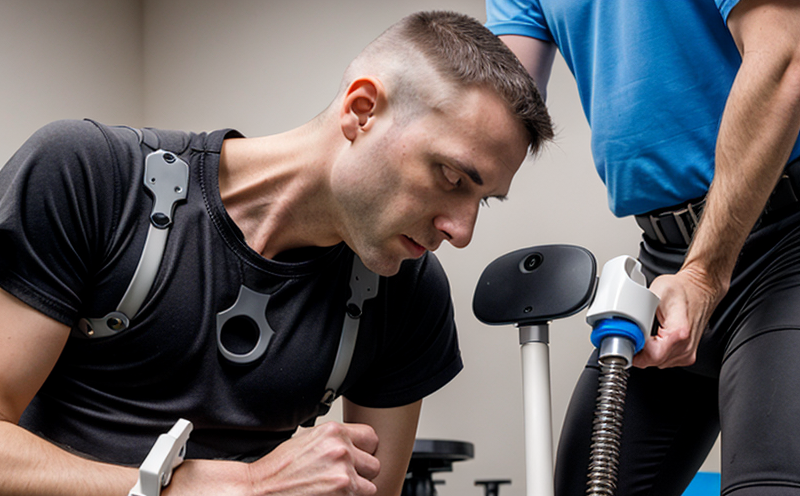ISO 10993-18 Chemical Characterization of Prosthetic Materials
The ISO 10993 series is a set of standards that provide guidance on biocompatibility testing for medical devices. Among these, ISO 10993-18:2017 specifically addresses the chemical characterization of materials used in prosthetic devices. This service ensures that the materials used are safe and do not cause adverse reactions when interacting with biological systems.
The process involves a detailed examination of the chemical composition, including elements, compounds, and additives present in the material. Compliance is essential for regulatory approval and to ensure patient safety. This service plays a crucial role in the development lifecycle of orthopedic and prosthetic devices by identifying potential risks early in the design phase.
The testing process begins with the collection of samples from various parts of the prosthetic device, including joints, fixation mechanisms, and surface coatings. These samples are then analyzed using advanced analytical techniques such as Inductively Coupled Plasma Mass Spectrometry (ICP-MS), Gas Chromatography-Mass Spectrometry (GC-MS), and Fourier Transform Infrared Spectroscopy (FTIR).
The primary objective is to identify the presence of any potentially harmful substances that might leach into the body over time. This includes heavy metals, plasticizers, stabilizers, and other additives used in the manufacturing process. By conducting thorough chemical characterization, we can ensure that only safe materials are selected for use in prosthetic devices.
The test results provide critical information to R&D engineers and quality managers. These insights help in refining the material selection process, optimizing production processes, and ensuring compliance with international standards. The data generated from this service is also invaluable during clinical trials and post-market surveillance activities.
Understanding the chemical composition of prosthetic materials is not only crucial for regulatory compliance but also for enhancing product performance. By identifying potential issues early in the design process, manufacturers can minimize costly redesigns and improve overall product quality.
In summary, ISO 10993-18:2017 chemical characterization ensures that orthopedic and prosthetic devices are safe and effective for use by patients. This service provides essential data to R&D teams and regulatory bodies, supporting the development of high-quality medical devices.
Applied Standards
The ISO 10993-18:2017 standard is widely recognized for its comprehensive approach to chemical characterization. It aligns with other key standards such as ASTM F713 and EN ISO 14972, which also cover aspects of biocompatibility testing.
The standard specifies the parameters and methods used in the analysis, ensuring consistency and reliability across different laboratories. Compliance with these international guidelines is crucial for manufacturers looking to meet regulatory requirements and gain market access.
- ASTM F713: This American Society for Testing and Materials standard provides a framework for evaluating the cytotoxicity of medical devices, which complements the chemical characterization provided by ISO 10993-18. It helps in assessing whether the materials can cause cell damage.
- EN ISO 14972: This European Union standard focuses on the overall biocompatibility evaluation of medical devices, incorporating various aspects including chemical composition as addressed by ISO 10993-18. It ensures that all components of a device are safe for use.
By aligning with these standards, our service ensures that clients meet both regional and international regulatory requirements, enhancing the credibility and marketability of their products.
Environmental and Sustainability Contributions
The ISO 10993-18:2017 chemical characterization process not only contributes to patient safety but also supports environmental sustainability. By identifying potential leachable substances early in the design phase, we help manufacturers select materials that are less likely to cause adverse reactions, reducing the need for costly redesigns and recalls.
The service also promotes the use of sustainable materials where possible. For instance, by ensuring that orthopedic implants do not contain harmful heavy metals, we contribute to a circular economy. This approach minimizes waste generation and reduces environmental impact throughout the product lifecycle.
Furthermore, the insights gained from this service can lead to the development of more durable and biocompatible materials. These advancements not only improve patient outcomes but also reduce healthcare costs in the long term by minimizing the need for replacements or revisions due to material-related issues.
The commitment to environmental sustainability is aligned with broader industry trends toward greener manufacturing practices. By adhering to ISO 10993-18:2017, manufacturers can position themselves as leaders in both product safety and environmental responsibility.
Use Cases and Application Examples
- Joint Replacement Devices: Ensuring that the materials used in artificial hips and knees do not contain harmful substances is crucial. Our service helps identify potential leachable compounds, ensuring patient safety during long-term use.
- Fixation Systems: For bone screws and plates, it’s essential to check for compatibility with bone tissues. By analyzing the chemical composition, we can ensure that these devices are safe and effective.
- Cochlear Implants: The materials used in cochlear implants need to be biocompatible to avoid irritation or rejection by surrounding tissue. Our service ensures that all components meet stringent safety standards.
- Spinal Devices: For spinal fusion devices, the integrity of the material is critical for long-term stability. By conducting thorough chemical characterization, we ensure that these devices are safe and effective over extended periods.
The insights gained from this service can also be applied to other medical devices, such as cardiovascular implants and dental prosthetics, ensuring that all materials used in orthopedic and prosthetic applications meet the highest safety standards.





